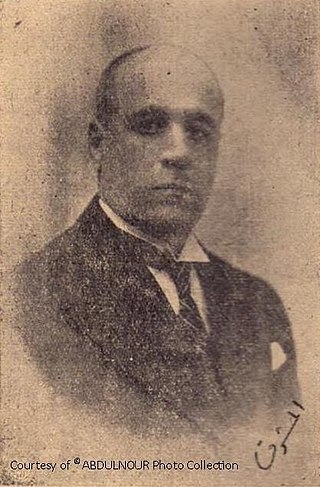
Presbyterianism is a part of the Reformed (Calvinist) tradition within Protestantism that broke from the Roman Catholic Church. Presbyterian churches derive their name from the presbyterian form of church government by representative assemblies of elders. Many Reformed churches are organised this way, but the word Presbyterian, when capitalized, is often applied to churches that trace their roots to the Church of Scotland or to English Dissenter groups that formed during the English Civil War.

A united church, also called a uniting church, is a denomination formed from the merger or other form of church union of two or more different Protestant Christian denominations, a number of which come from separate and distinct denominational orientations or traditions. Multi-denominationalism, or a multi-denominational church or organization, is a congregation or organization that is affiliated with two or more Christian denominations, whether they be part of the same tradition or from separate and distinct traditions.

The United Presbyterian Church of North America (UPCNA) was an American Presbyterian denomination that existed for one hundred years. It was formed on May 26, 1858, by the union of the Northern branch of the Associate Reformed Presbyterian Church with the Associate Presbyterian Church (Seceders) at a convention at the Old City Hall in Pittsburgh. On May 28, 1958, it merged with the Presbyterian Church in the United States of America (PCUSA) at a conference in Pittsburgh to form the United Presbyterian Church in the United States of America (UPCUSA).

The Church of Christ in Thailand (C.C.T.) is a Protestant Christian association. It is the largest Protestant denomination in Thailand and is considered to be the largest by group of Protestant members in Thailand.

The Union of the Armenian Evangelical Churches in the Near East, abbreviated as UAECNE, is an autonomous body of Armenian Evangelical churches comprising 25 congregations throughout Lebanon, Syria, Turkey, Greece, Egypt, Iran, Iraq and Australia.

Catholics in Iraq follow several different rites, but in 2022, most (82%) are members of the Chaldean Catholic Church; about 17% belong to the Syrian Catholic Church, and the remainder are primarily Armenian, Greek and Latin-rite Catholics.

The Evangelical Church of Egypt (Synod of the Nile) (also called the Evangelical Presbyterian Church in Egypt, Egyptian: الكنيسة الإنجيلية المشيخية El-Kenisa El-Engileyya El-Mashyykhia) is a Protestant church that started as a mission of the United Presbyterian Church of North America among Coptic Egyptians in the late nineteenth century. The Evangelical Church of Egypt became autonomous in 1957 and officially independent in 1958. It has eight presbyteries, 314 congregations, and about 250,000 members.

The term Eastern Protestant Christianity encompasses a range of heterogeneous Protestant Christian denominations that developed outside of the Occident, from the latter half of the nineteenth century, and yet retain certain elements of Eastern Christianity. Some of these denominations came into existence when active Protestant churches adopted reformational variants of Eastern and Oriental Orthodox liturgy and worship, while others are the result of reformations of Orthodox beliefs and practices, inspired by the teachings of Western Protestant missionaries.

There are around 500,000 to 1,000,000 Protestants in Egypt, with 300,000 to 600,000 being members of the Evangelical Church of Egypt, Pentecostals number 300,000 to 350,000, and various other Protestants scattered in smaller denominations.

Chaldean Catholics, also known as Chaldeans, Chaldo-Assyrians or Assyro-Chaldeans, are ethnic Assyrian adherents of the Chaldean Catholic Church, which originates from the historic Church of the East.
The Evangelical Presbyterian Church of Ukraine is a conservative Evangelical Protestant denomination in the Reformed tradition. It holds to the presbyterian form of church governance and to the Reformed theology of the Westminster Standards.
The Fellowship of Middle East Evangelical Churches (FMEEC) is an ecumenical organisation comprising Protestant churches in the Middle East with representatives from Sudan to Iran. Established in 1974, the current president of the FMEEC is the Rev Dr Andrea Zaki.
The Presbyterian Church of the Philippines (PCP), officially The General Assembly of the Presbyterian Church of the Philippines, is a growing evangelical, Bible-based Reformed church in the Philippines. It was officially founded in 1987 and the General Assembly was organized in September 1996.
The Presbyterian Church in Sudan or also the Presbyterian Church in South Sudan is a major Reformed denomination in South Sudan, when it become independent from Sudan.
The Protestant Church in Indonesia is a Reformed church; it is a member of World Communion of Reformed Churches.

Abdulahad Abdulaziz AbdulNour was an Iraqi physician, politician, and humanitarian. He served as a medical doctor in Mosul before World War I, during the war with the Ottoman Army, and he founded the Royal Hospital of Erbil. He also served in Mosul and various Iraqi cities in public and private medical positions after the war, until he died in 1948. He was elected twice to the Council of Representatives of Iraq to represent the Christians of Mosul during the monarchy rule.









